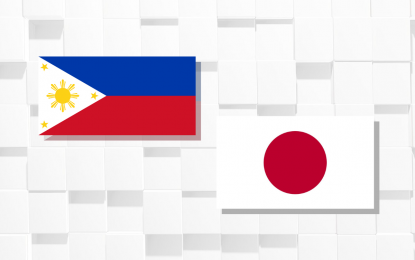
MANILA – President Ferdinand R. Marcos Jr. said on Monday that he and Japanese Prime Minister Fumio Kishida agreed to immediately finalize the discussion on the planned Reciprocal Access Agreement (RAA), stressing that the Philippines will continue to talk with other like-minded nations to resolve the issue in the South China Sea.
In a media interview before returning to the Philippines, the President was asked about the specific timeline for the finalization of the RAA.
“I think both Prime Minister and I agree, ASAP lahat ito is – as soon as possible, yesterday, if not sooner,” he said.
The RAA has been in the works for some time but both countries sharpened their focus as a result of the recent incidents in the West Philippine Sea (WPS), he said, noting that he is looking forward to having such an arrangement not only with Japan, but also with other countries to give the Philippine big multiplier effect in terms of capability.
Such discussions, he said, become a very important part of these trips, saying that he approached other leaders during formal discussions to talk about security issues in the WPS.
“This is one of the products of that. We also have the same kind of negotiations or discussions with many other countries. We’ll continue to do that para maraming tumutulong sa atin, sa problemang hinaharap natin sa South China Sea,” he noted.
The RAA is expected to greatly boost maritime cooperation between the two countries as the proposed RAA will facilitate the procedures and set guidelines when Philippine forces visit Japan for training and joint exercises, and vice versa.
Formal negotiations on the RAA were held in Tokyo on Nov. 29-30 of this year, with the Philippine delegation being headed by the Department of National Defense, accompanied by negotiating teams from the Department of Foreign Affairs and Department of Justice.
Asked to comment on the reported presence of an extraordinary number of Chinese vessels in Ayungin shoal, the President said that his government is very circumspect in its actions to avoid unintended results.
“Of course, we’re exerting all efforts now but it’s the… we have to be very careful that we do not overreact, that we do not make mistakes that might be misinterpreted by anyone,” he told reporters.
“Kailangan talaga maingat tayo dahil pag may nangyari ulit diyan… if we heightened the tensions, it won’t lead us to a good result. So we are being very circumspect in the actions that we will take,” he added.
Critical move
Speaker Martin Romualdez on Monday said the ongoing talks between the Philippines and Japan on RAA for the deployment of military forces would be a critical move amid escalating regional tensions.
"The collaboration between the Philippines and Japan, as well as our alliance with other like-minded nations, is crucial in addressing the growing challenges we face in the region,” Romualdez said in a statement.
“It is evident that the complexities of the current geopolitical climate, particularly the aggressive actions of China in the South China Sea, require robust and cooperative solutions,” he added.
Romualdez stressed the need for sustained dialogue and peaceful negotiations among all parties involved.
"While we remain committed to defending our national interests and upholding our sovereign rights, it is equally imperative to pursue diplomatic avenues and peaceful engagements," he said.
He called for greater international cooperation and unity in addressing the challenges in the South China Sea.
"The safety and prosperity of our region hinge on our ability to work together. The Philippines, under the leadership of President Marcos, remains steadfast in its resolve to promote regional stability, peace, and progress," he said.
He noted that under President Marcos’ administration, the Philippines has maintained a policy adhering to international rules-based order and ensuring a free and open Indo-Pacific region.
Romualdez further noted that the ruling by the Permanent Court of Arbitration in 2016, which invalidated China's expansive claims in the South China Sea, is an essential component of the legal framework "governing our actions and stands as a testament to our commitment to international law and order."
The RAA is expected to boost maritime cooperation between the two countries as the proposed RAA will facilitate the procedures and set guidelines when Philippine forces visit Japan for training and joint exercises, and vice versa. (with a report from Filane Mikee Cervantes/PNA/PND)
